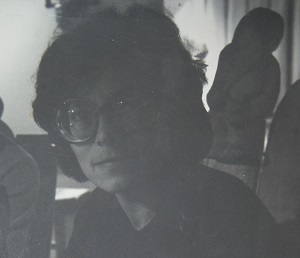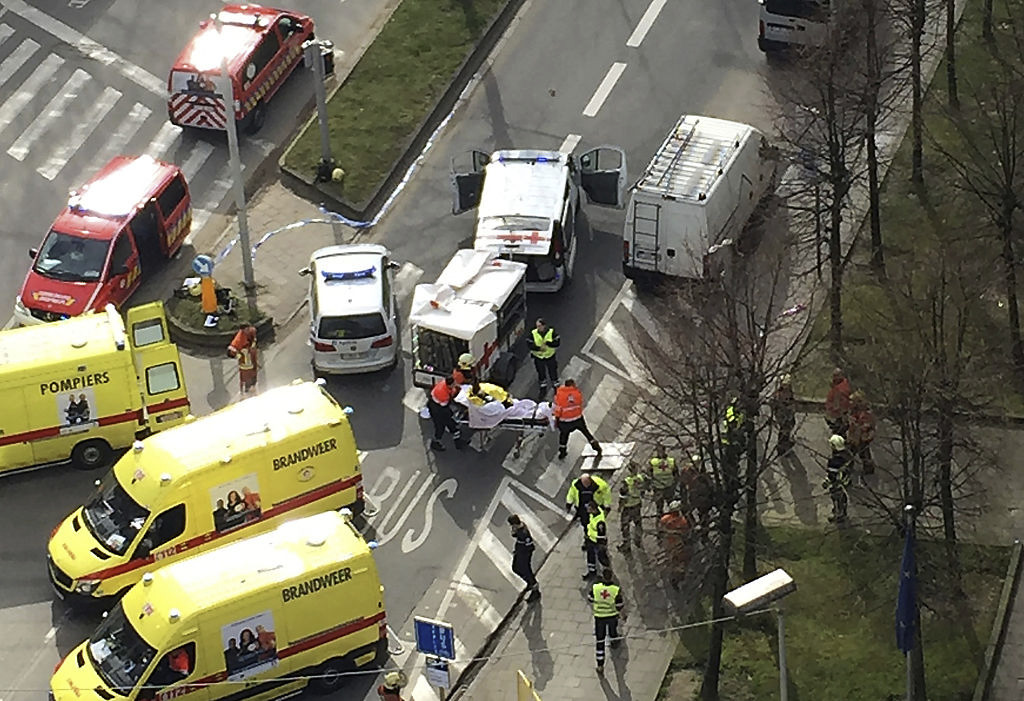
 Pamiętnik znaleziony w starym łbie
Pamiętnik znaleziony w starym łbie
Andrzej Koraszewski
Komunistów nie było, bo prywatnie, okazywało się nieodmiennie, że udawali dla chleba i kariery. Był rok 1962. Docent Włodzimierz Wesołowski, poprosił mnie do swojego gabinetu i zapytał, czy czytałem „Rewolucję menadżerską” Burnhama. Giedroyc wydał po polsku Burnhama w 1958 roku, wiedziałem o tej książce, szukałem do niej dostępu. Wesołowski wiedział, że fascynuje mnie Weber. Zapytał, czy chciałbym napisać referat o Burnhamie. Roześmiałem się. Zapytałem, czy to może być uczciwy referat. Odpowiedział, że kilka cytatów z Marksa się przyda. Wypisał mi zlecenie do prohibitów (czyli pozwolenie na wypożyczenie z uniwersyteckiej biblioteki książki niedozwolonej). Zamyślił się i zapytał: „czy zna pan panią Jakubowicz”. Pokręciłem głową. Powiedział: „To bardzo inteligentna studentka, ona już to czytała, może napiszecie razem ten referat.” Dał mi adres.
Małgorzata Jakubowicz mieszkała na Trębackiej, w domu pracowników Ministerstwa Kultury, gdzie pracowała jej matka. Zadzwoniłem następnego dnia do drzwi jej mieszkania i mówię dziewczynie o propozycji docenta. Zaprosiła mnie do swojego pokoiku. Jasne meble, wąskie łóżko, stół pod oknem, a na nim maszyna do pisania „Underwood”, (ciężki biurowy grat, ale nie do zdarcia), za plecami półka na książki.
„Czytałeś już Burnhama” – zapytała studentka Jakubowicz surowo. Odpowiedziałem, że nie, ale mam już egzemplarz, a o samej książce czytałem sporo. Czytałeś książki o podobnej problematyce – padło kolejne pytanie. Nie byłem pewien, co mam odpowiedzieć, poinformowałem, że pisałem Weberze i jego koncepcji idealnej biurokracji. Małgorzata kiwnęła głowa i zaczęła referować książkę Burnhama. Po kilku minutach przesunąłem w moją stronę „Underwooda”, wkręciłem kartkę i zacząłem pisać.
– Co ty robisz idioto – zapytała moja nowa znajoma. Odpowiedziałem, że piszę co mówi, bo to najlepsze streszczenie jakie dotąd czytałem.
Wtedy zobaczyłem jej pierwszy uśmiech. Zabrała mi maszynę i dokończyła swoją prezentację idei świata porwanego przez menadżerów-biurokratów, zarządzających kapitałem, polityką i mediami.
A potem, ta o trzy lata młodsza smarkula urządziła mi egzamin. Co czytałeś, co myślisz, jak widzisz nasz wspólny referat.
Wyszedłem z Trębackiej z listą książek do przeczytania i zadaniem powrotu za trzy dni.
Potem przez jakiś czas widywaliśmy się codziennie. Poznałem jej chłopaka. Marek, starszy od niej historyk, wówczas już asystent na wydziale historii, patrzył na mnie podejrzliwie. Dziś mu się nie dziwię, ale wtedy śmieszył mnie, bo w tej naszej przyjaźni z Małgorzatą nie było cienia seksualnej atrakcji, ja byłem po uszy zakochany w mojej pierwszej żonie, a dla niej byłem wyłącznie facetem, z którym dobrze się dyskutuje, trochę podejrzanym, bo partyjnym.
Któregoś dnia zapytała groźnie: „Dlaczego jesteś w Partii?”.
Odpowiedziałem: „Kołakowski też jest w Partii”, komunizm sam się nie skończy, można to zmienić tylko od środka.”
– I ty w to wierzysz?
Wzruszyłem ramionami. Domyślałem się już, że popełniłem błąd, ojciec mówił: uważaj, historia z każdego robi idiotę, to wredna małpa.
Napisaliśmy ten referat, została przyjaźń, potrzeba częstych spotkań, tylko we dwoje, żeby nam nikt nie przeszkadzał w tych naszych rozmowach. Moja pierwsza żona, Krystyna, znacznie starsza ode mnie aktorka, która porzuciła teatr dla pisania, też była zaniepokojona tą przyjaźnią.
To moje pierwsze małżeństwo było z innego świata, bohema, mnóstwo alkoholu, szaleństwo świata narcyzów i pozerów. Spotkania z Małgorzata były odpoczynkiem. Najbardziej przyziemna istota pod słońcem, zero emocji, czysta rzeczowość, piękno logiki urzekało ją bardziej niż wzniosłość sonetów. A jednak od czasu do czasu schodziliśmy w naszych rozmowach na sprawy osobiste. Rodzina Marka, endecka, wściekle antysemicka, Marek nie przyznał się rodzicom, że Małgorzata jest Żydówką. Słuchałem tego i nie rozumiałem. Mój świat też się zaczął sypać, Krystyna wpadła w alkoholizm, na dodatek doszła do tego narkomania. Próbowała mnie w to wciągnąć, na szczęście nie dałem się. Romans z Krystyną zaczął się kiedy byłem na pierwszym roku. Kilka egzaminów zawaliłem, straciłem dwa lata studiów. Kiedy poznałem Małgorzatę pracowałem i kończyłem studia. Krystyna raz za razem lądowała w szpitalu na przymusowym leczeniu, po złapaniu jej na podrabianiu recept na morfinę. Leczenie nie pomagało. Moje życie zmieniło się w piekło. Patrzyłem jak ukochana kobieta zmienia się w ludzki wrak. Po trzech latach walki postawiłem warunek: albo całkowite odstawienie i alkoholu i narkotyków, albo odchodzę.
Wychodziłem do pracy i wracałem wiedząc, że zastanę ją znowu nieprzytomną. Przestała chodzić do pracy (wcześniej pracowała w radiu), przestała pisać. Próbowałem ją namówić do napisania książki o koszmarze uzależnienia. Nie wyszło. Moja troskliwość budziła w niej agresję i nienawiść. Zapytałem lekarza, co się stanie jak ją zostawię? Odpowiedział, że to samo, co jak zostanę, tyle, że razem pójdziemy na dno. Moja śpiewająca piękność była już na dnie, ja mogłem teraz zrobić tylko jedno, odbić się i zaczerpnąć powietrza.
W styczniu 1967 roku ostatecznie wyprowadziłem się do mojej siostry.
Któregoś dnia odwiedziłem Małgorzatę. Nie widzieliśmy się rok, a może dłużej. Ucieszyła się na mój widok, zapytała co słychać i czemu zniknąłem na tak długo. Powiedziałem, że przegrałem walkę o postawienie Krystyny na nogi.
Małgorzata kazała sobie opowiedzieć dokładnie całą historie uzależnienia, próby wyciągnięcia, opinie lekarzy. Zapytała jak Krystyna sobie teraz poradzi. Powiedziałem, że Krystyna ma zasiłek chorobowy, że pomaga jej Związek Literatów i pierwszy mąż, który jest dość zamożny.
– Czasem trzeba życie zacząć od początku, ja też rozstałam się z Markiem. Związek Żydówki z endecką rodziną miał złe rokowania.
Powiedziałem, że muszę lecieć, bo mam nową pracę i muszę się nauczyć moich nowych obowiązków.
– Co to za praca?
– Zostałem kierownikiem jednoosobowego zespołu z szumną nazwą Ośrodek Badania Opinii Społecznej przy Agencji Robotniczej, w skrócie BOS-AR.
Małgorzata parsknęła śmiechem i powtórzyła „jednoosobowy ośrodek”. Kiwnąłem głową informując, że nazwy nie dadzą mi zmienić, ale mogę z tego zrobić referat analiz badań innych kretynów uprawiających pseudonaukę nazywaną socjologią.
Przy drzwiach powiedziała cicho: przychodź.
Przychodziłem. Gdzieś w połowie lutego poszliśmy do „Rycerskiej” na kolację. Historia stara jak świat. Pocałowałem ją przed bramą na Trębackiej. Roześmiała się. Odwracając się powiedziała: pogadamy o tym później.
Kiedy przyszedłem znowu, sięgnęła po kożuszek i powiedziała – idziemy na spacer.
Usiedliśmy w parku w milczeniu patrząc przed siebie, tylko nasze ręce do siebie pobiegły. Krzycząc, że oboje chcemy czegoś więcej.
W końcu Małgorzata powiedziała: Jutro niedziela.
Zapytałem, czy mogę wpaść.
Możesz, mam klucz od mieszkania ciotki, która wyjechała, tam pójdziemy.
Kilka dni później, Anna, matka Małgorzaty, cudowna kobieta, zatrzymała mnie, kiedy wychodziłem.
Przestańcie się wygłupiać – powiedziała – zostań na noc, przecież nie umiecie się od siebie oderwać.
Zapewnialiśmy się dzielnie, że jesteśmy nadal tylko przyjaciółmi, że to taki związek na chwilę, póki nie znajdziemy kogoś innego, żadnych zobowiązań, po prostu lubimy ze sobą rozmawiać, a teraz trochę więcej, bo nie przeszkadza nam brak ubrań. Maski zdjęliśmy już dawno, więc to była tylko reszta garderoby.
Małgorzata, która pisała swoją pracę magisterską pod kierunkiem Wesołowskiego, teraz robiła u niego doktorat. Miała asystenturę w Zakładzie Socjologii PAN i coraz częściej rozmawialiśmy o tym jak pusta jest ta cała socjologia, jak niewielu socjologów mówi coś, co warte jest wysłuchania do końca.
– Powinnam była iść na biologię.
– Głupia jesteś – odpowiedziałem – masz wspaniały prawniczy umysł, powinnaś studiować prawo, ale wtedy ja bym cię nie spotkał, a to byłoby bardzo niewłaściwe.
– Chcesz powiedzieć, że się zakochałeś?
– Zaczynam podejrzewać, że zakochałem się w tobie przy pierwszym spotkaniu, tylko o tym nie wiedziałem.
– Hm, daj się zastanowić, kto wie, czy to nie było z wzajemnością, z całą wzajemną nieświadomością.
Minął marzec, kwiecień, polubiła moją siostrę, ciągle niepewna, czy gdzieś nie wylezie odrzucenie, jakiś ślad tak głęboko siedzącego w polskiej kulturze antysemityzmu. Zdziwiło ją, że mąż mojej siostry to też Żyd. Ojciec Rosjanin, matka Żydówka (przyjaciółka mojej matki), a on stu procentowy Polak, tyle, że Żyd.
Chodziliśmy ciągle na spacery, a jak tylko pojawiły się fiołki, to kupiłem jej podczas spaceru bukiecik w kwiaciarni, a ona szybko schowała go kieszeni kurtki, bo potrzebowała rąk do gestykulacji.
Kończył się maj 1967. Izrael był otoczony ze wszystkich stron potężnymi armiami. Egipt i Syria uzbrojone przez Związek Radziecki i Jordania uzbrojona i wspierana w nienawiści do Izraela przez Brytyjczyków. Polskie gazety bredziły jak „Prawda”, siedzieliśmy przylepieni do radia, słuchając Wolnej Europy. Małgorzata była kłębkiem nerwów. Wiedziałem, że ma rację. Izrael był bez szans, jego dni były policzone. Próbowałem ją pocieszać, wymyślałem absurdalne scenariusze, że może Ameryka się ruszy. W rzeczywistości sprawa była jasna. Nie ma żadnej nadziei. Z czwartego na piątego czerwca spałem na Trębackiej i rano dowiedzieliśmy się, że Izrael napadł na trzy kraje arabskie. Długo patrzyliśmy na siebie w niemym ogłupieniu.
Pierwszy szok to jeszcze nic. Po trzech dniach było jasne, że radziecka broń za miliardy dolarów na naszych oczach zmienia się w stertę złomu.
Nie byliśmy sami w naszej oszalałej radości, słuchaliśmy teraz wolnej Europy zbiorowo i z alkoholem, chyba czwartego dnia tej wojny poszliśmy z nieżyjącym już dziś przyjacielem z wydziału, Jackiem Tarkowskim do mojej siostry. Popiliśmy solidnie i koło północy wychodząc odtańczyliśmy pod Barbary oknem horę. Jacek improwizował:
Hej tam na wzgórzu, tam na wielbłądzie
Nasser spier…, aż się kłębi kurz.
o mój Dajanie, o mój Dajanie,
O mój Dajanie, jednooki mój.
Za drugim razem darliśmy się już wszyscy troje, Po trzecim razie uznaliśmy, że starczy i poszliśmy w kierunku najbliższego postoju taksówek.
Barbara mieszkała w bloku dla rodzin oficerów Wojska Polskiego. Kilka dni później usłyszałem jak Gomułka pluje w mikrofon:
„Izrael napadł na kraje arabskie, a w Warszawie Żydzi tańczyli z radości na ulicach”.
Gdyby nie fakt, że on mówił o Żydach, a pod blokiem oficerskim tańczyło dwóch polskich Polaków i jedna polska Żydówka, to chyba bym pomyślał, że o nas mówi.
A warszawska ulica rzeczywiście była wtedy zachwycona. Co chwila człowiek słyszał: „Nasi Żydzi dali w dupę ruskim Arabom”.
Moja dziewczyna znów była cudownie przyziemna, wściekle logiczna, i oszczędna emocjonalnie.
*Ciąg dalszy nastąpi albo nie.
Zawartość publikowanych artykułów i materiałów nie reprezentuje poglądów ani opinii Reunion’68,
ani też webmastera Blogu Reunion’68, chyba ze jest to wyraźnie zaznaczone.
Twoje uwagi, linki, własne artykuły lub wiadomości prześlij na adres:
webmaster@reunion68.com




